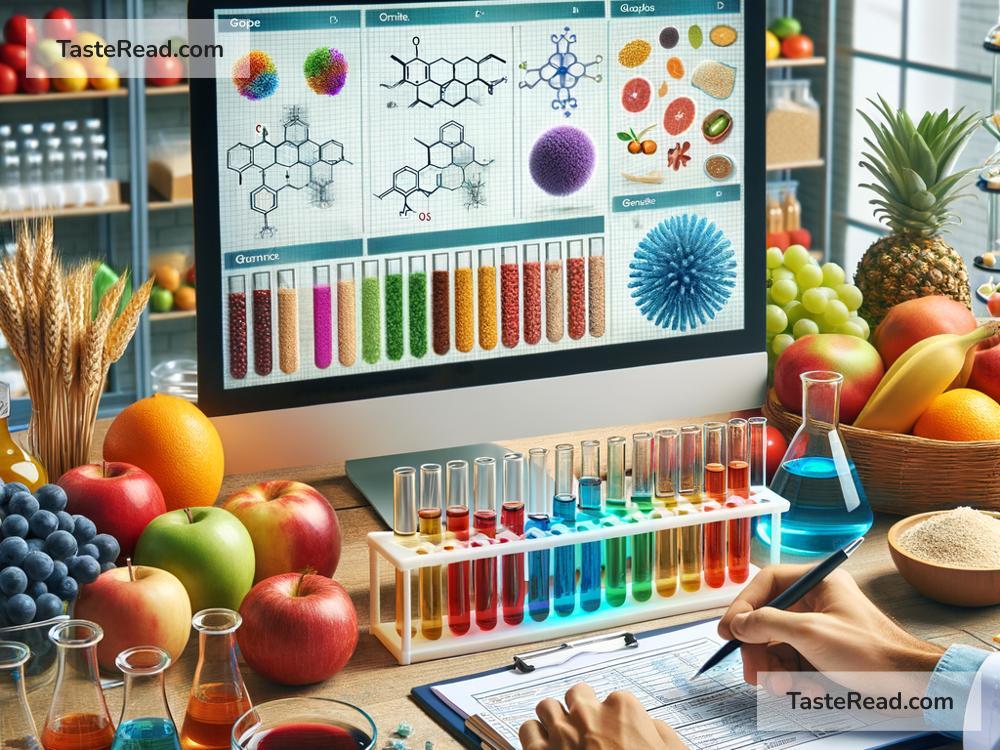The Impact of Food Metabolomics on Nutrition: A Simple Guide
Have you ever stopped to think about why certain foods are good for you and why others might not be? Scientists have been asking this question for years, and now there’s a fascinating field of study that’s helping them figure it out: food metabolomics. It sounds complicated, but don’t worry—we’ll break it down in simple terms.
What Is Food Metabolomics?
Let’s start with the basics. Metabolomics is the study of metabolites, which are tiny molecules produced when your body breaks down food or performs other chemical processes. Think of metabolites as the footprints left behind after your body processes what you eat. Food metabolomics, then, focuses on understanding the metabolites that come from food and how they impact your body.
For example, when you eat an apple, your body breaks it down into chemicals (or metabolites) like sugars, vitamins, and fiber. These metabolites interact with your body’s cells and systems in different ways, influencing things like your energy levels, digestion, and even your immune system.
Why Is Food Metabolomics Important?
Food metabolomics matters because it gives us a much deeper understanding of how food affects our health. In the past, nutrition was mostly about studying calories, proteins, fat, carbohydrates, and vitamins. This approach gave us a general idea of what foods were considered “healthy” or “unhealthy.” However, not all calories or nutrients are processed the same way by every person. Everyone’s body is unique, and food metabolomics helps reveal these differences.
By studying food metabolites, scientists can learn how specific foods interact with our individual biology. This can lead to more personalized nutrition advice, tailored to your body’s needs rather than general guidelines for the entire population.
Personalized Nutrition: One Size Doesn’t Fit All
Ever wondered why your friend can eat pizza every day and stay fit, while you gain weight just by looking at a slice? The answer might lie in your body’s unique metabolome—that is, the collection of metabolites in your body.
Food metabolomics is paving the way for personalized nutrition. Scientists can analyze your blood, urine, or saliva to understand your metabolome and figure out which foods are the best fit for you. For example, one person may need to eat more spinach to boost their iron levels, while someone else might benefit more from foods rich in omega-3 fatty acids, like salmon.
This approach goes beyond generic dietary advice, like “eat more vegetables.” It helps you learn exactly which vegetables (or other foods) your body needs for optimal health. Personalized nutrition could also help prevent or manage chronic illnesses like diabetes, heart disease, and obesity by understanding what’s happening at the molecular level when you eat.
How Food Metabolomics Improves Health
-
Spotting Nutrient Deficiencies: By analyzing metabolites, scientists can detect if your body is lacking key nutrients even before symptoms show up. For example, if your metabolome suggests low levels of vitamin D, a doctor could recommend foods or supplements to keep your bones strong.
-
Managing Chronic Diseases: Food metabolomics can help identify how certain foods impact conditions like diabetes or heart disease. For instance, certain diets might work better for people with diabetes depending on how their body processes sugar. This opens the door to more effective treatment plans.
-
Preventing Obesity: Researchers can study how different people metabolize fats, sugars, or proteins. Knowing how your body stores or burns energy could help design a diet that prevents weight gain or supports weight loss tailored specifically to you.
-
Enhancing Athletic Performance: Athletes often use nutrition to improve performance—and food metabolomics can make this even more precise. By understanding how their body metabolizes protein or carbs, they can design meal plans to maximize muscle growth, energy, and recovery.
Challenges and the Future of Food Metabolomics
While food metabolomics is exciting, it’s still a growing field. One of the biggest challenges is the complexity of studying metabolites. Thousands of them exist, and they often interact in ways we don’t fully understand yet. Additionally, the tools and technology needed to analyze metabolites can be expensive or time-consuming.
Another hurdle is making personalized nutrition available to everyone. Right now, customized metabolic testing is mostly done in laboratories or clinics, which can be costly. Scientists hope that as this technology becomes more advanced, it will also become more affordable and accessible.
Despite these challenges, the future of food metabolomics looks promising. Researchers are already using powerful tools like artificial intelligence (AI) to make sense of metabolomic data faster. Imagine a world where you could go to your local grocery store, and your shopping list is automatically tailored to your body’s specific needs based on a simple test—this might not be too far off!
Wrapping It Up
Food metabolomics is revolutionizing the way we think about nutrition. Instead of applying the same dietary rules to everyone, it focuses on how foods affect individual bodies at the molecular level. By understanding food metabolites, scientists can develop personalized nutrition plans to improve health, prevent disease, and make people feel their best.
As this field grows, it could dramatically change how we eat and care for our bodies. Imagine living in a world where food truly feels like medicine because it’s perfectly matched to your unique biology. That’s the promise of food metabolomics—and it’s coming sooner than you might think.
So, next time you eat a meal, take a moment to appreciate the hidden science behind every bite. You never know—it could hold the secret to better health and a longer life!


